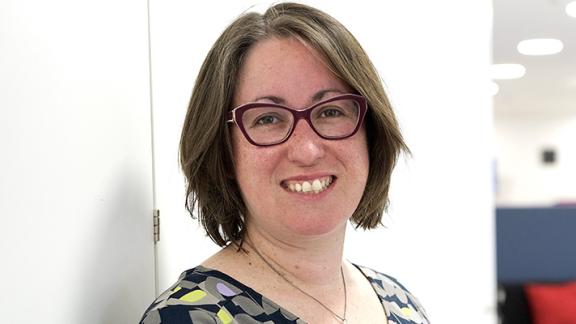What is the experience of LGBTQ+ NHS staff?

On International Day Against Homophobia, Biphobia, Intersexism and Transphobia, Dr Layla McCay considers the inequalities of experiences of LGBTQ+ people as reflected in the NHS Staff Survey. The findings show that LGBTQ+ staff in the NHS still have a worse work experience than their colleagues – but there are some signs of improvement.
Today is International Day Against Homophobia, Biphobia, Intersexism And Transphobia (IDAHoBIT) and is an opportune time to reflect on how prejudice and discrimination contribute to inequalities of experience and opportunity for LGBTQ+ staff in the NHS – and what that means for the NHS People Promise.
The annual NHS staff survey is one of the biggest staff surveys in the world. The most recent staff survey results were released in March 2023 and as ever, they are illuminating. Amongst many other factors, the staff survey provides unique insight into the current experience of LGBTQ+ people working in the NHS. The overall picture is one of inequity – LGBTQ+ staff have a worse experience of working in the NHS compared to colleagues on most indicators that make up the NHS’s People Promise themes, although there are some signs of improvement compared with the previous year.
The 2022 NHS staff survey tells us that when it comes to LGBTQ+ staff, significant inequality is still evident. That translates to worse staff experience for at least one in twenty people working in the NHS.
One interesting survey finding is how many LGBTQ+ people work in the NHS: at least one in every twenty staff members. Of the respondents, 2.6% identified as gay or lesbian and 2% as bisexual; 5.9% reported they would prefer not to say; and 0.4% of respondents identified as transgender. This tells us at least one in every 20 NHS staff members is LGBTQ+.
These surveys tend to underestimate the true numbers because of the many reasons a person may not feel comfortable ticking these boxes. But visibility is important because it allows for better insight, understanding and actions to drive improvement. That is certainly the opportunity we can see in this survey where the data provides a comprehensive picture of the experience at work of tens of thousands of LGBTQ+ NHS staff. It’s not a rosy picture.
One in five LGBTQ+ staff experienced violence from patients or relatives compared to one in seven of their colleagues, with bisexual and transgender staff experiencing particularly high rates of violence.
It is disappointing to see there has been little change this year in the disproportionately high levels of physical violence that LGBTQ+ NHS staff experience compared to their colleagues. One in five LGBTQ+ staff experienced violence from patients or relatives compared to one in seven of their colleagues, with bisexual and transgender staff experiencing particularly high rates of violence. LGBTQ+ staff also experienced higher rates of bullying and harassment both from patients and from colleagues and managers.
That said, it is heartening to see a little improvement this year in LGBTQ+ staff’s perceived access to health and wellbeing support and in their views about fairness in career progression, though their experiences are still not on a par with the wider workforce. It is also good to see that there is no disparity with how supported LGBTQ+ people felt by their line managers, or how respected by their team.
Creating inclusive environments
One telling indicator of progress is inclusivity. More than 7 out of 10 LGBTQ+ people working in the NHS feel their organisation is inclusive, and this score is rising. But there is no place for complacency. Almost a third of LGBTQ+ people do not feel included. To continue progressing in the right direction, NHS leaders must take responsibility for analysing their own organisation’s data using information supplied as part of the NHS staff survey data reports, identify where there are equity gaps, and develop action plans to address these issues, modelled on the approach that has been used in relation to WRES and WDES data.
A good place to start is the NHS Confederation’s Health and Care LGBTQ+ Inclusion Framework which provides peer insights into how to achieve further progress. There are early indications of positive progress for the organisations who participated in the pilot of the recommendations in the framework, and we look forward to tracking this in future years.
The purpose of IDAHoBIT is to remind us that prejudice isn’t simply a concept; it causes real world discrimination that can manifest as exclusion, bullying, harassment and abuse that have deep impacts on the lives and careers of NHS staff. The NHS People Promise applies to all NHS staff, but the 2022 NHS staff survey tells us that when it comes to LGBTQ+ staff, significant inequality is still evident. That translates to worse staff experience for at least one in twenty people working in the NHS, and tells us that it’s time for action.
Layla McCay is director of policy NHS Confederation and executive lead of the Health and Care LGBTQ+ Leaders Network. You can follow Layla on Twitter @LaylaMcCay.



